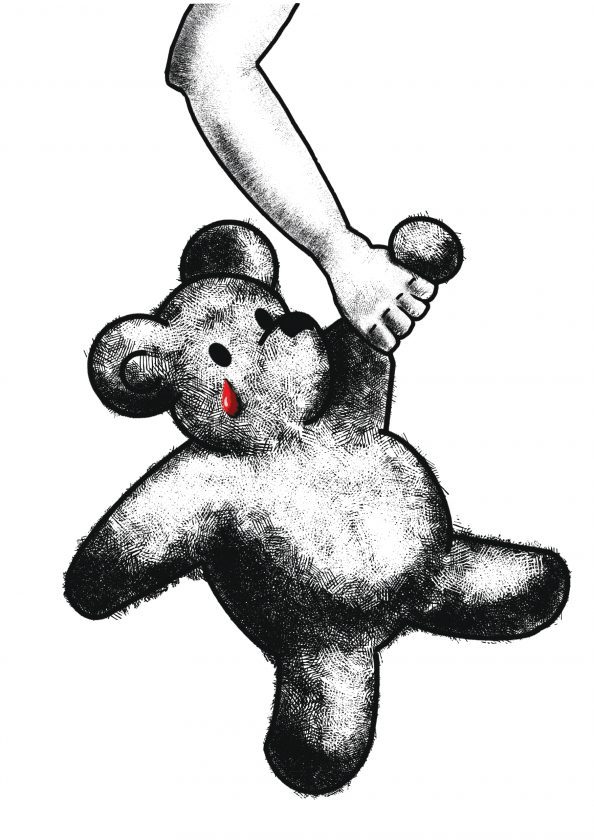
Grief is an inevitable emotion, leaving no man unscathed; it takes our lives by storm, but usually only temporarily. For Palestinians, however, loss is an everyday custom, although grief, perhaps, is less of a luxury.
In just two months, Palestine’s death toll has surpassed 13,000 deaths, with at least 5,000 of them being children, according to health authorities in Gaza. Beyond the loss of human lives, the Palestinian Ministry of Foreign Affairs stated that around 22,600 residential units have been demolished.
With Palestinians experiencing such constant loss from all aspects of life, grief is bound to make its presence felt.
“The experience of grief is an indication we’ve lost a meaningful connection to something very important to us,” says Gurusewak Khalsa, associate counseling professor of psychology at AUC.
As Khalsa explains, grief is what allows you to honor a connection you once had, whatever that connection may be.
However, in the case of Palestinians who lose something dear to them almost daily, dealing with feelings of grief tends to fall to the bottom of their priority list.
“Repeated loss, compounded from previous generations, and experienced again by each member of the community, can result in ongoing challenges in processing grief,” Khalsa tells The Caravan.
In psychology, experiencing grief usually means having to live through the five stages of grief, which consist of denial, anger, bargaining, depression, and acceptance, according to the psychological Kubler-Ross model. Most people spend no less than a year getting through these stages.
However, Khalsa explains that while grief and its stages may be unfeasible for the normal Palestinian individual, the concept of collective grief, a shared emotional response to a significant tragedy among a large group of people may be present despite people projecting it differently.
“No expression of grief represents the ‘true and best way to grieve;’ each person has their own unique reaction to loss,” he says.
Having to be a survivor of previous and ongoing trauma creates a level of complexity in griefing that goes beyond griefing under stable circumstances. Khalsa highlights that rather than emotions of grief, many Palestinians may be overwhelmed with feelings of guilt, especially those living abroad.
“What we might call survivor’s guilt is very common for people experiencing grief in these situations,” says Khalsa.
He explains how guilt from being away from the direct conflict, from watching the news of their country from the safety of their homes, and from being unable to support their fellow Palestinians in any way can overpower feelings of grief.
Rasha Saib, a Palestinian majoring in Psychology, agrees with Khalsa and echoes feelings of guilt for being a bystander watching from miles away, unable to stand by her people and help them.
“I think it’s a different type of grief when your own people are being murdered, and you’re not there,” she says.
However, when the stages of grief were brought up, Saib mentioned that such a journey cannot be endured in the case of Palestinians. In her opinion, to properly grieve, following the stages of grief, one must reach a level of acceptance eventually, but in no scenario is accepting death due to the ethnic cleansing of your people an option.
“I do not think I have ever properly grieved. I do not accept the death of my people,” says Saib.
Some Palestinians, however, explain that they often channel grief into motivation to liberate their country. Carla Hossam, a Palestinian student majoring in Construction Engineering, shared that sentiment.
“Every time I feel sad, I say, Carla, wake up, stand up for your country, stand up for your dream that will help your country,” Hossam says.
Having lived in Gaza her entire life up until last year, Hossam witnessed many of the wars that took place in Palestine and still has her entire family there right now.
“My body is here in Egypt, but the rest of Carla is in Gaza, with my family; my parents, my cousins, all of them,” she says.
Hossam experienced primary grief, an initial response to a personal loss, in the last month when her role model and previous calculus teacher was killed.
“When I heard he was killed, my heart was burning, but I did not cry… maybe because I have no more tears to cry…I never imagined one day I would hear ‘Dr. Khaled is a martyr,’” she says.
However, instead of letting her anger at this injustice take over, Hossam explains that she uses this grief to make her people proud, especially her teacher. She keeps his memory alive as she tutors calculus at AUC.